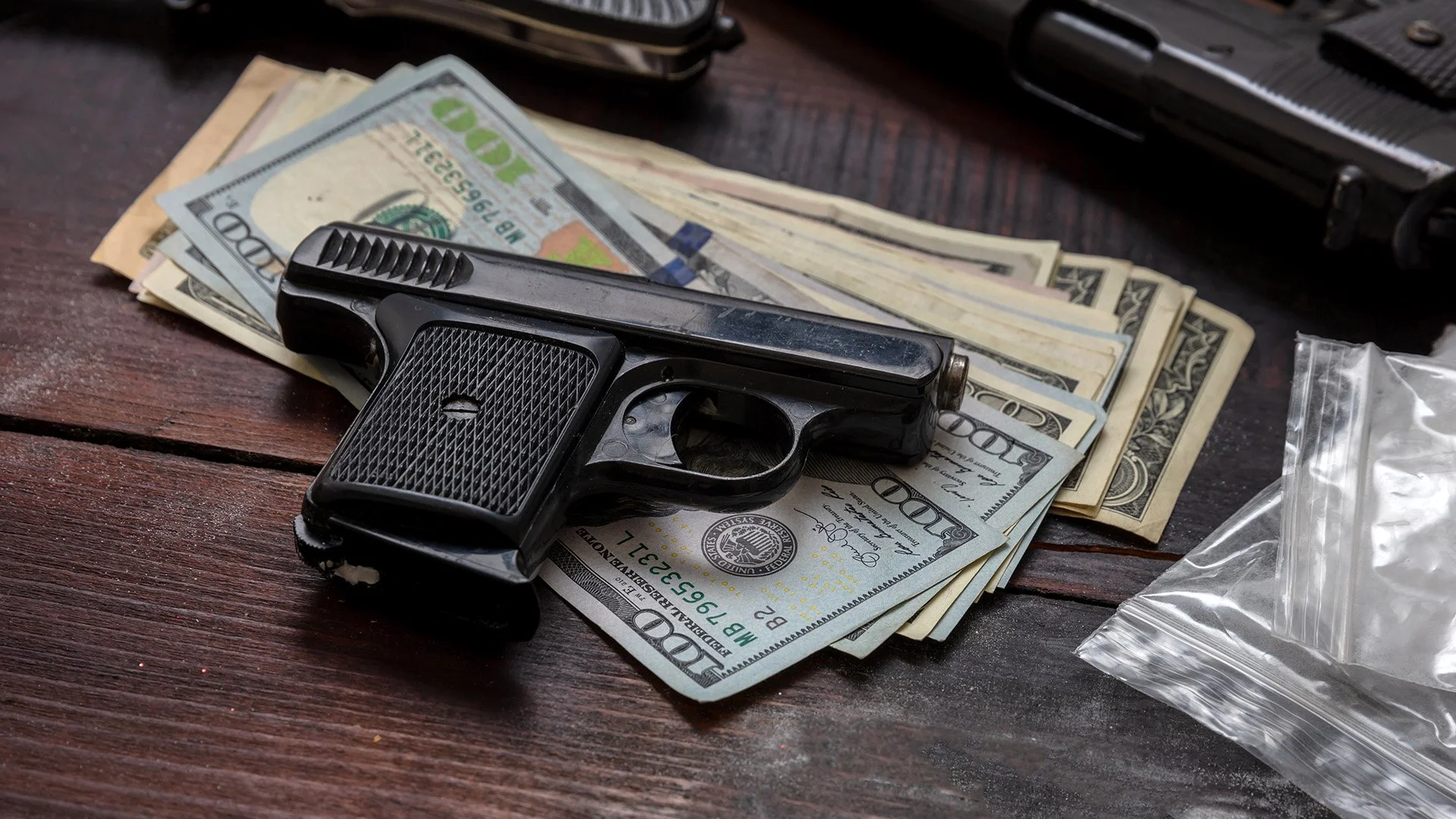"The Godfather": A Study in Nepotism
By Randy Kaufman & Dustin Lowman
The Godfather (1972) was not the first gangster film, but it was the first gangster film to portray gangsters as people, not cartoons. Family dynamics, immigration challenges, moral disputes, and romantic turmoil all roil the realistically fictional Corleone family — tensions not limited to the mafia setting.
Mafia organizations are structured around family hierarchies, meaning the eldest are the bosses, and the progeny inherit. It’s like a royal bloodline, where your main qualification is your last name (which, of course, is given, not earned). Anyone who has been remotely conscious since 2016 should be starting to the see the parallels with America’s mob-boss-in-chief, Donald J. Trump. From loyalty tests to cushy gigs for his kids to questionable-at-best revenue streams, Trump’s presidency has featured flagrant examples of nepotism at the top.
I recently rewatched The Godfather and, as I am wont to do, found myself relating it back to my experiences as an advisor. No, I have not dealt with crime bosses. But what I have dealt with is nepotism, what happens when fortunate relatives receive more than they’ve earned. The Godfather, I realized, is a study in nepotism; in Vito Corleone’s three sons, we see three examples of the psychological effects of a privileged birthright. Particularly during election season, it struck me as an issue more than worth exploring.
Sonny: The Reckless
Sonny Corleone is Vito’s oldest son. This means that he’s next in line to become the boss. In his mind, this also means he wields all the power and untouchability of the boss, which causes him to act impulsively. Sonny is quick to anger, and equally quick to translate anger into violence, which causes him to meet an untimely — and pretty gnarly — end. “Look how they messed up my boy,” Vito weeps in an iconic scene, as his worst fears about his firstborn have come to fruition.
Sonny, basically, had all of Vito’s status, with none of the knowledge and experience that came with getting it. In the also-classic Part II, we learn more about Vito’s backstory, which includes his father being murdered, immigrating to the U.S. at nine years old without speaking any English, being extorted by a local mob boss, and finally, making one of his un-refusable offers to jump to the top of the social food chain.
Whether or not you think Vito passes a moral rectitude test, we can agree that his status is a product of resilience, determination, and willpower. He learned how to swim in shark-infested waters the hard way. Sonny, meanwhile, always had a cage around him.
The lesson here is not that fortunate children need to learn everything the hard way. But, when possible, it’s worth setting younger generations up for experiences that show them that everything doesn’t come easy. Things like summer jobs, semesters abroad, and independent living can all be good ways to demonstrate this. Things that, in a nutshell, create a manageable level of stress which must be handled independently, and that ultimately, build resilience.
Fredo: The Feckless
When the time comes for Vito to be succeeded, Sonny is gone, so Fredo would be next in line. However, Fredo is deemed “too weak,” meaning he’s not ruthless enough to run this kind of organization. The family sends him to Las Vegas, which, at the time, is still transitioning from desert town to pleasure den.
Predictably, Fredo gets wrapped up in all the sensory delights that Las Vegas has to offer, and ends up developing a greater loyalty to them than to his family. In Part II, he reaches new depths, helping orchestrate an unsuccessful attempt on his brother Michael’s life. Things end less than rosily for Fredo.
Where Sonny took his family’s status to mean he could do whatever he wanted, Fredo took it to mean he didn’t have to do anything in particular. His cushy gig is a clear result of connections he did not make, and by all accounts, he’s not much of a worker. Like others before him, he fell in love with the perks, and lost sight of the job itself.
The bottom line here is similar to Sonny’s, in the sense that Fredo’s errors stem from a lack of appreciation for the sources of his status. In Fredo, we also have a case study in the perils of excess — all play, no work.
But also, we see a prime example of mismanagement. Fredo often displayed a sensitive side that neither Sonny nor Michael displayed. It went uncultivated in the violent, crime-filled family environment, and likely festered into resentment. When considering the extent to which children fit into the family enterprise, it’s always worth noting that a misalignment of value systems does not necessarily mean either side is wrong.
Michael: The Ruthless
Michael is an interesting case, because unlike his brothers, he has no fatal flaw that takes him out of the fold. Rather, the youngest Corleone son is the truest replica of Vito, in that he will go to any length to protect what his father has built. Michael is doubly interesting because at the outset of The Godfather, he seems more likely to go straight than to stay criminal. But after an assassination attempt on his father, something flips, and he starts descending further and further into the family “business.”
One of the most compelling aspects of The Godfather, and of gangster films in general, is that they throw our concepts of “right” and “wrong” out the window. (Although, let me be absolutely clear: I don’t recommend or condone the criminal activity in this or any gangster film.) We’re supposed to root for Michael as he transforms into Don Corleone. But of course, this transformation requires him to become a murderous criminal, committed to preserving the family, often at the expense of the law.
This, perhaps, is what we learn from Michael: Taking the reins comes at a cost. Certainly, Michael loses much by becoming Don — most notably, his wife and his children, who leave him alone in Part II. Most succession stories won’t be as extreme as Michael’s. But at the very least, it’s worth contemplating what a successor loses in taking on such significant responsibility, and whether the sacrifice is worth it.
Filial Piety
There can be many upsides to having relatives close by when running a business. In the best case scenarios, family members trust and understand each other more deeply than anyone else. Children who have been exposed to the inner workings of businesses will know them inside and out. But like anything, there are some major pitfalls that the right foresight can help us avoid. I’ve worked with families (whose business endeavors do not resemble the Corleones’) for a long time, and love the process of helping them realize their visions and values.
As usual, if anything in this article sparked your interest, please don’t hesitate to reach out!
Click here to download a printable PDF of this article.



